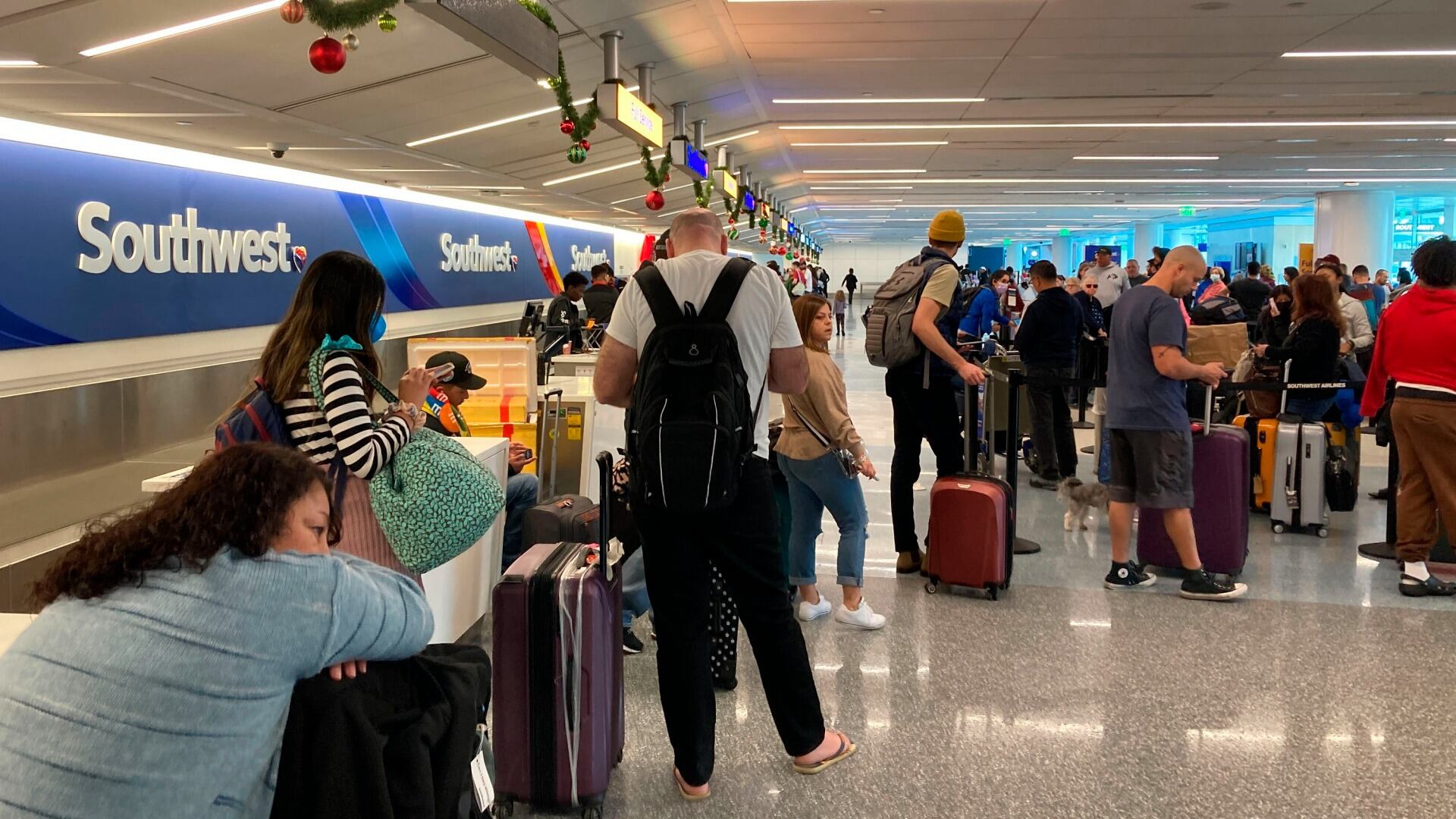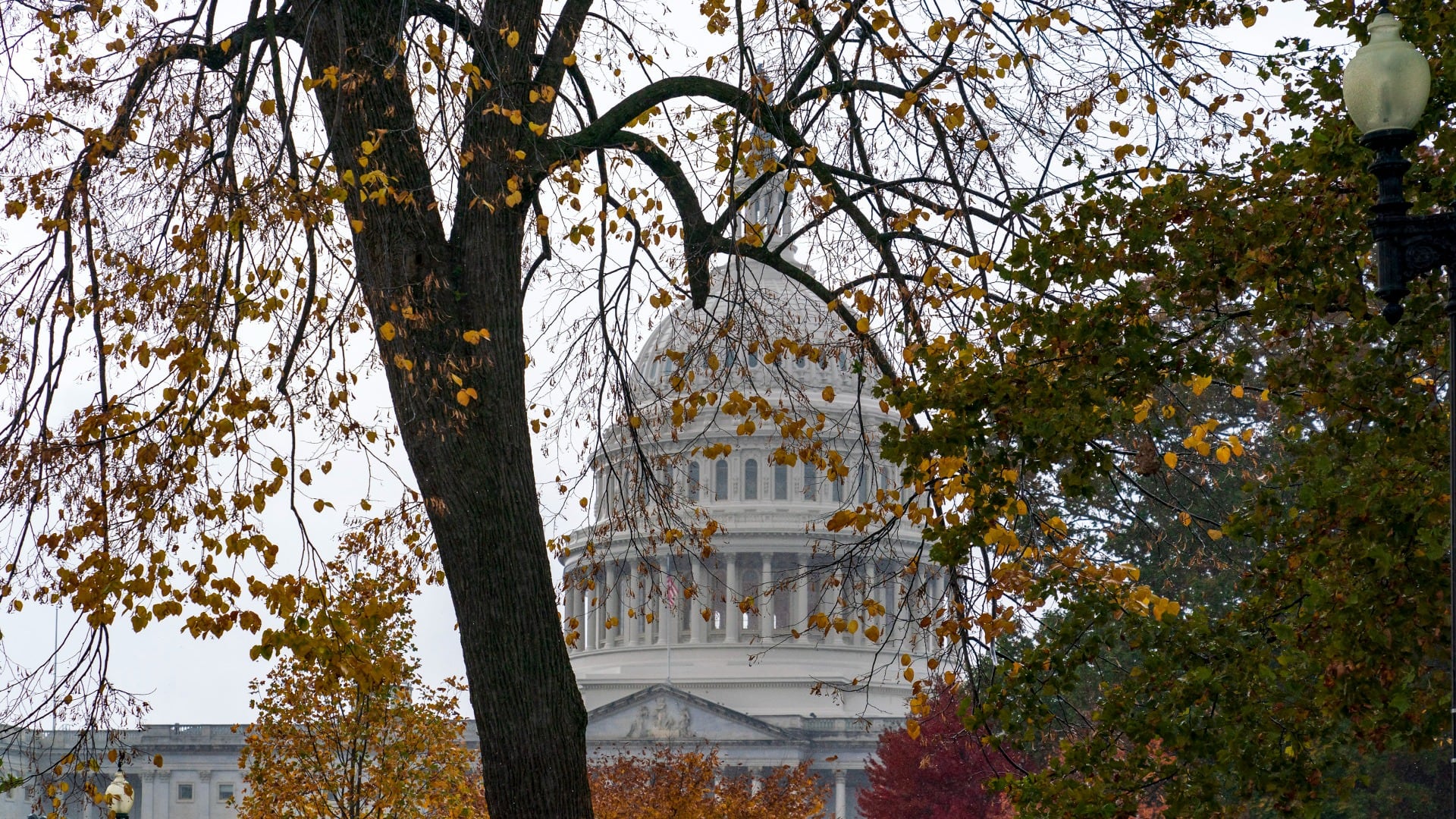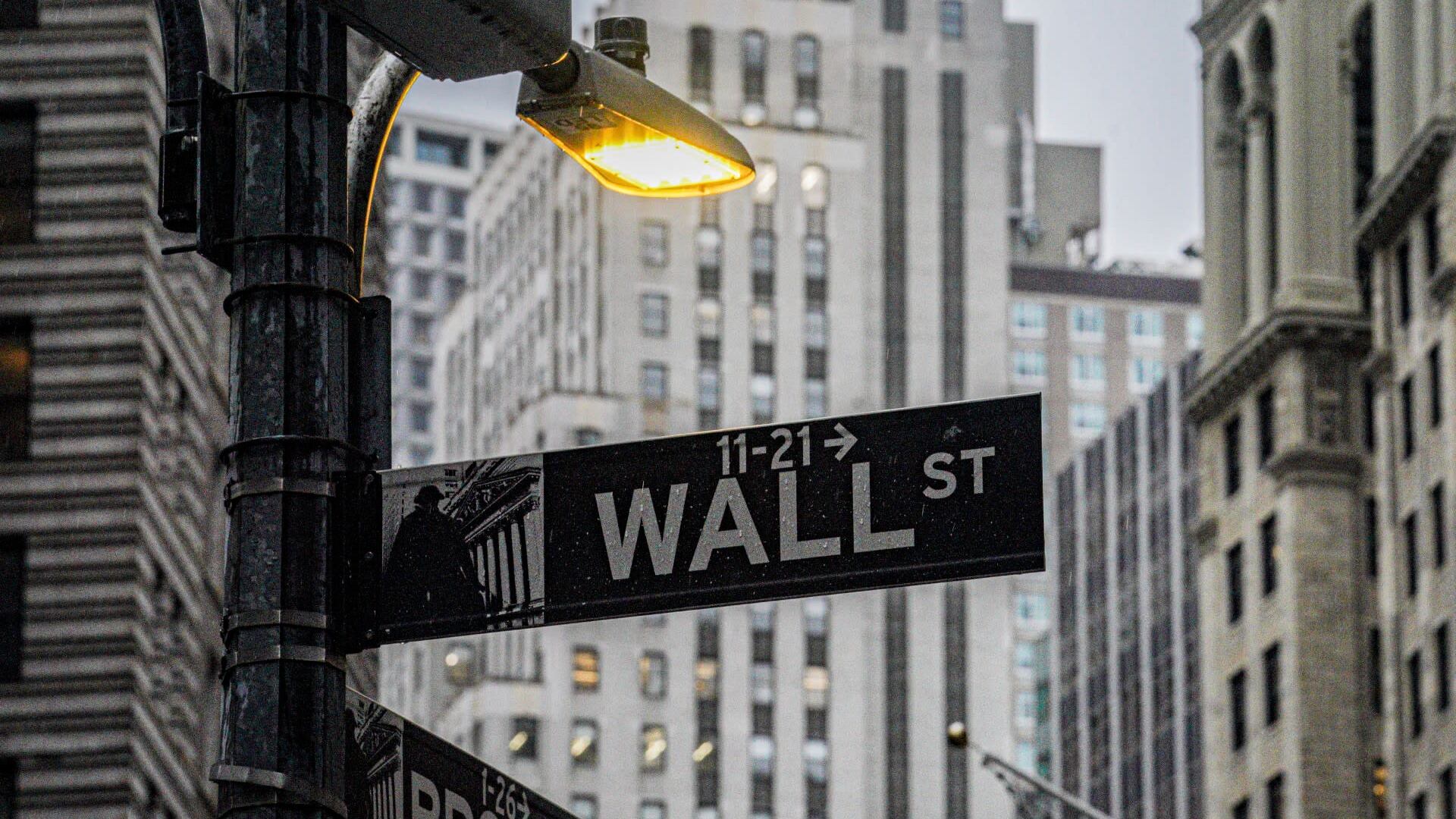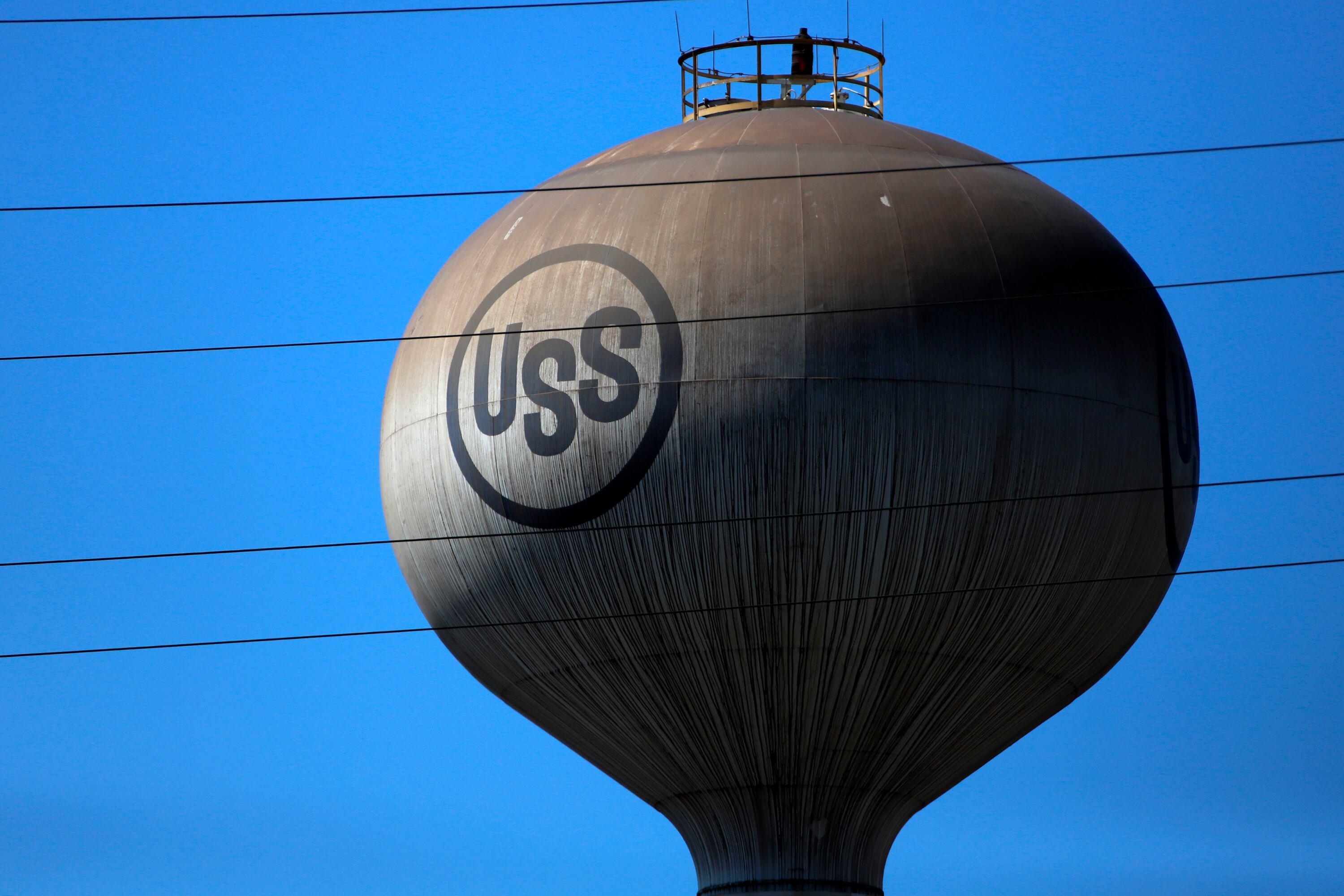Donald Trump has appealed his $454 million New York civil fraud judgment, challenging a judge’s finding that he lied about his wealth as he grew the real estate empire that launched him to stardom and the presidency.
The former president’s lawyers filed notices of appeal Monday asking the state’s mid-level appeals court to overturn Judge Arthur Engoron’s Feb. 16 verdict in Attorney General Letitia James’ lawsuit and reverse staggering penalties that threaten to wipe out Trump’s cash reserves.
Trump’s lawyers wrote in court papers that they're asking the appeals court to decide whether Engoron “committed errors of law and/or fact” and whether he abused his discretion or “acted in excess” of his jurisdiction.
Trump’s appeal won’t automatically halt enforcement of the judgment.
The Republican presidential front-runner has until March 25 to secure what’s known as a stay, a legal mechanism pausing collection while he appeals. Trump would receive an automatic stay if he puts up money, assets or an appeal bond covering what he owes. Trump’s lawyers could also ask the appeals court to grant a stay without obtaining a bond or with a bond for a lower amount.
Trump’s lawyers did not immediately respond to a reporter’s questions Monday asking if he had posted an appeal bond or if he was in the process of securing one.
In a statement issued through a spokesperson, Trump lawyer Alina Habba addressed only the appeal itself, saying: “We trust that the Appellate Division will overturn this egregious fine and take the necessary steps to restore the public faith in New York’s legal system.”
Messages seeking comment were left with the New York attorney general’s office and a spokesperson for the state’s court system.
Engoron found that Trump, his company and top executives, including his sons Eric and Donald Trump Jr., schemed for years to deceive banks and insurers by inflating his wealth on financial statements used to secure loans and make deals. Among other penalties, the judge put strict limitations on the ability of Trump’s company, the Trump Organization, to do business.
The appeal ensures that the legal fight over Trump’s business practices will persist into the thick of the presidential primary season, and likely beyond, as he tries to clinch the Republican presidential nomination in his quest to retake the White House.
If upheld, Engoron’s ruling will force Trump to give up a sizable chunk of his fortune. Engoron ordered Trump to pay $355 million in penalties, but with interest the total has grown to nearly $454 million. That total will increase by nearly $112,000 per day until he pays.
Trump maintains that he is worth several billion dollars and testified last year that he had about $400 million in cash, in addition to properties and other investments. James, a Democrat, told ABC News that if Trump is unable to pay, she will seek to seize some of his assets.
Trump’s appeal was expected. Trump had vowed to appeal and his lawyers had been laying groundwork for months by objecting frequently to Engoron’s handling of the trial.
Trump said Engoron’s decision, the costliest consequence of his recent legal troubles, was “election interference” and “weaponization against a political opponent.” Trump complained he was being punished for “having built a perfect company, great cash, great buildings, great everything.”
Trump’s lawyer Christopher Kise said after the verdict that the former president was confident the appeals court “will ultimately correct the innumerable and catastrophic errors made by a trial court untethered to the law or to reality.”
If the decision stands, Habba said, “it will serve as a signal to every single American that New York is no longer open for business.”
Trump wasn’t able to appeal the decision immediately because the clerk’s office at Engoron’s courthouse had to file paperwork known as a judgment to make it official. That was done on Friday, starting a 30-day window for Trump to pay up or file an appeal and seek a stay.
If Trump were to pay the penalty at this stage instead of obtaining a stay, the money would be held in a court escrow account while the appeal plays out. If the court overturns the verdict, the money would be returned to Trump.
During the trial, Trump’s lawyers accused Engoron of “tangible and overwhelming” bias. They've also objected to the legal mechanics of James’ lawsuit. Trump contends the law she sued him under is a consumer-protection statute that’s normally used to rein in businesses that rip off customers.
Trump’s lawyers have already gone to the Appellate Division at least 10 times to challenge Engoron’s prior rulings, including during the trial in an unsuccessful bid to reverse a gag order and $15,000 in fines for violations after Trump made a disparaging and false social media post about a key court staffer.
Trump’s lawyers have long argued that some of the allegations are barred by the statute of limitations, contending that Engoron failed to comply with an Appellate Division ruling last year that he narrow the scope of the trial to weed out outdated allegations.
The Appellate Division could either uphold Engoron’s verdict, reduce or modify the penalty or overturn the decision entirely. If Trump is unsuccessful at the Appellate Division, he can ask the state’s highest court, the Court of Appeals, to consider taking his case.
The appeal is one of Trump’s many legal challenges. He has been indicted on criminal charges four times in the last year. He is accused in Georgia and Washington, D.C., of plotting to overturn his 2020 election loss to Democrat Joe Biden. In Florida, he is charged with hoarding classified documents.
He is scheduled to go on trial March 25 in Manhattan for falsifying business records related to hush money paid to porn actor Stormy Daniels on his behalf.
In January, a jury ordered Trump to pay $83.3 million to writer E. Jean Carroll for defaming her after she accused him in 2019 of sexually assaulting her in a Manhattan department store in the 1990s. That’s on top of the $5 million a jury awarded Carroll in a related trial last year.













